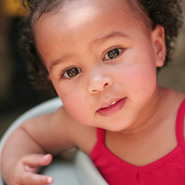Manning-Morton looks at possession and social rules.

In the last article in this series, ('Me time', Nursery World, 9 March), we identified the primary task of two-year-olds as 'being and becoming themselves'. This aspect of development is sometimes interpreted by adults as anti-social and egocentric, unable to consider others and unwilling to share and co-operate in a group.
But those working closely with two-year-olds in settings where their characteristics and development are understood will refute this view. They will testify to the enormous interest most two-year-olds have in being with, playing with and forming friendships with others.
THEORY OF MIND OR MINDSIGHT
 It is fair, however, to say that although two-year-olds frequently show empathy and concern for others, they often struggle with understanding and keeping other people's needs in mind.
It is fair, however, to say that although two-year-olds frequently show empathy and concern for others, they often struggle with understanding and keeping other people's needs in mind.
Register now to continue reading
Thank you for visiting Nursery World and making use of our archive of more than 35,000 expert features, subject guides, case studies and policy updates. Why not register today and enjoy the following great benefits:
What's included
-
Free access to 4 subscriber-only articles per month
-
Unlimited access to news and opinion
-
Email newsletter providing activity ideas, best practice and breaking news
Already have an account? Sign in here









